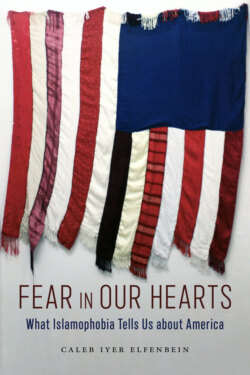Читать книгу Fear in Our Hearts - Caleb Iyer Elfenbein - Страница 8
На сайте Литреса книга снята с продажи.
Wake Up, Fall Out of Bed
ОглавлениеWhen I’m introducing a new topic to students in my classes, I try to concretize things by helping them make connections between the material we are discussing and their own lives. For me, this is a really important step toward imagining a life and experiences different from our own—a central goal of this book—because it helps us reflect on things about our own lives that might otherwise remain invisible to us. The following short exercise is similar to one I might do in the classroom.
Please think for a moment about your morning routine. We all have one, right? Maybe even put this book down and take a second to jot down what your routine looks like. What do you do before you leave home for school or work or to meet up with a friend?
Let’s compare notes.
I wake up, think about my day, fumble around a little bit as I fall out of bed, wake up my daughter, listen to the news on the radio while I make some breakfast, get dressed, walk my daughter (and the dog) to the bus stop, and then continue on to work.
The particulars may be different, but I would guess that the basic elements of most of our morning routines are pretty similar.
How many of you included in your list having to think about potential harm once you—or your child or your partner—walk out the door? If your response to that question is “me” or “I did,” then chances are you don’t really need an exercise to help you connect to the material in this book. But for others, pointing out the absence of something can be a powerful way of uncovering things we take for granted.
I never, ever leave my house concerned about what I might run into. I don’t have to think about it. I just walk out the door, assuming that everything is going to be just fine. I don’t have to consider that the very fact of being out in the world might lead me into an encounter with hostility because of who I am or because of who other people perceive me to be.
In fact, my everyday life is free from these concerns precisely because of who I am, or at least how I imagine people perceive me. My gender and racial appearance and lack of identifiable religious identity make it possible for me to have a morning routine free of concern about what awaits me out in the world.
Yet there are people very, very dear to me—including in my family—who do have to think about encountering hostility when they leave the house. They have helped me, and sometimes pushed me, to reflect on how different it is to live with this possibility rather than to live without it.
It is a very significant difference. The kind of difference that could explain what the young woman you are about to meet calls “fear in your heart.”
